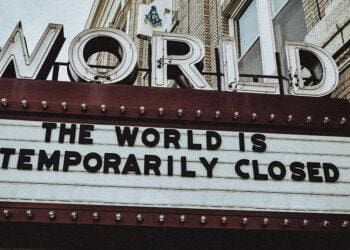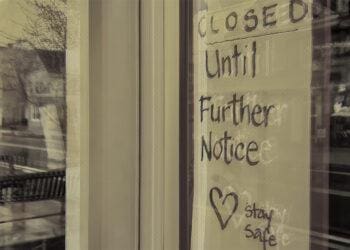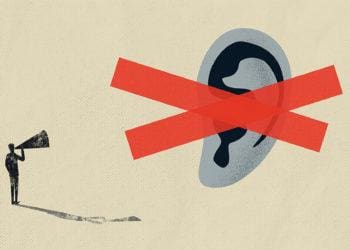COVID-19 may be the most significant compliance challenge we’ve faced in modern times, and, as Calvin London writes, the handling of the pandemic – certainly where he lives, in Victoria, Australia – continues to provide insights into the practice of compliance.
For a bit of background, Victoria must hold the record for the most number of enforced lockdowns (six to date) and the most number of days in lockdown. The state had a continuous lockdown of 112 days last year, and the current, sixth lockdown has just been extended until the start of September (with a nighttime curfew), which will make it just short of a month. At one stage during the last two lockdowns, more than 13 million people in Australia (60 percent of the East Coast) were in lockdown.
As I sat staring out the window the other day, I had one of those moments: “This is just like compliance!” I thought to myself.
The quest for zero cases of COVID-19 seems akin to the pipe dream that there will be a world without corruption and bribery. Furthermore, lockdowns do not add to the long-term dream, because in order to be successful, they rely on people being socially responsible and “doing the right thing” – just as it is in compliance!
Managing Those Who Are Noncompliant
Unfortunately, as any compliance professional will support, there will always be bribery, corruption and wrongdoing as long as there is that minority element who will not or cannot do the right thing. Their actions (the actions of a few) affect the lives of so many (everyone in lockdown).
There are different shades of noncompliance, and the consequences for doing the wrong thing should be factored accordingly. The compliance world has already discovered that if you want to have a hope of stopping noncompliance, you have to make it personal and hold individuals accountable. It is too easy for a company to swallow up a billion-dollar fine if the product or service at the center of the wrongdoing is going to yield multiple billions in return. Go after the CEO or executive that authorizes and drives the noncompliance, and hopefully it becomes a more powerful deterrent.
Case in point is the man who left the heavily contaminated areas of Sydney and broke all restrictions to go to Byron Bay (800 kilometers from Sydney) supposedly to look at real estate with his two children. All three tested positive for COVID-19. The man had “nothing in his phone in terms of QR codes, didn’t believe in COVID-19.” (QR codes have been introduced in Australia to track everyone’s movements. People are required to register with a QR code tracking system when they enter any public place or shop.) It has not been disclosed what penalties (if any) he will face.
Last week two women flew from Sydney to Melbourne while infected with COVID-19. They have been put into hotel quarantine and fined the equivalent of $4,000 each. The other 46 passengers have all been put into a 14-day quarantine. Several other examples also demonstrate the selfish actions of individuals that affect the lives of so many others trying to do the right thing (e.g., the report on August 16 of an engagement party of over 50 people and a house party with 1,000 guests).
If the Process Doesn’t Work, Fix it!
Other lockdowns (not just in Victoria) are the result of compliance breaches in quarantine facilities (usually converted hotels) or the result of people that are known to be infected blatantly ignoring rules to isolate.
The similarities offer a reflection of the corporate world, in which processes and practices of compliance are implemented that sound good on paper but do not withstand the test when implemented. If you have a system that is broken, failing to fix it can have disastrous implications for your compliance.
Like many parts of the world, masks in Victoria are mandatory at the moment, inside and out. This varies depending on the state of restrictions. Chopping and changing where and when masks are required only serves to confuse the population, leading to noncompliance. Mixed messaging leads to noncompliance, whether intentional or not. A mask worn around your chin does little to arrest the spread of coronavirus and is no more added value than if the person had no mask at all. A significant proportion of the population find an excuse not to wear a mask and, like many perpetrators of wrongdoing, believe that it is their right and they should never be challenged.
As a result, very few people feel comfortable challenging someone who is not wearing a mask or wearing one inappropriately, because they may be unsure as to what is exactly required. If this is one of the most important areas of COVID-19 compliance, shouldn’t it be more appropriately defined and policed?
Isn’t this also reflective of most “speak up” programs that fail from the start because there is neither protection nor reassurance for those who are prepared to speak up?
It is reassuring, however, that the hotline to police reported 1,300 calls regarding breaches of compliance over the weekend. The proof now will be what happens next.
Too Much of a Good Thing
The quest for a world with no bribery and corruption, while commendable, is a long way off. So, too, is the desire for zero COVID-19. Regulators need to take stock of their plans for corrective and preventative actions, because if they are too demanding on the majority and do not reinforce adequate correction of those at fault, the program starts to suffer from compliance fatigue. This was one reason offered for the party that spurred a further two weeks of lockdown in Victoria.
Victoria has spent the majority of time from March last year in some form of restrictions or lockdown. When the majority of the population are trying to do the right thing and observe those who don’t seemingly getting away with it, they start to wonder whether they should break ranks and not be compliant. The result? People become complacent, and complacency has no place in compliance.
People need some reward for being compliant: a better world, a better workplace or a better work life. Being punished en masse for doing no wrong does not seem to be a good compliance adage. Similarly, asking people to follow something they have lost faith in has historically not worked as a compliance initiative either.
So, as I sat staring out the window, I thought about the effects of COVID-19 on different people and the similarities of enforcing compliance. Different governments have taken different approaches, with different outcomes and degrees of success. People have responded in different ways. The one thing that rings true for both is that the actions of a few affect the lives of so many. Isn’t COVID-19 the biggest global compliance challenge we have faced in recent years? Shouldn’t we at least consider the basic principles of compliance in trying to solve it?



 Calvin London, Ph.D., is the Founder and Principal consultant at
Calvin London, Ph.D., is the Founder and Principal consultant at 









